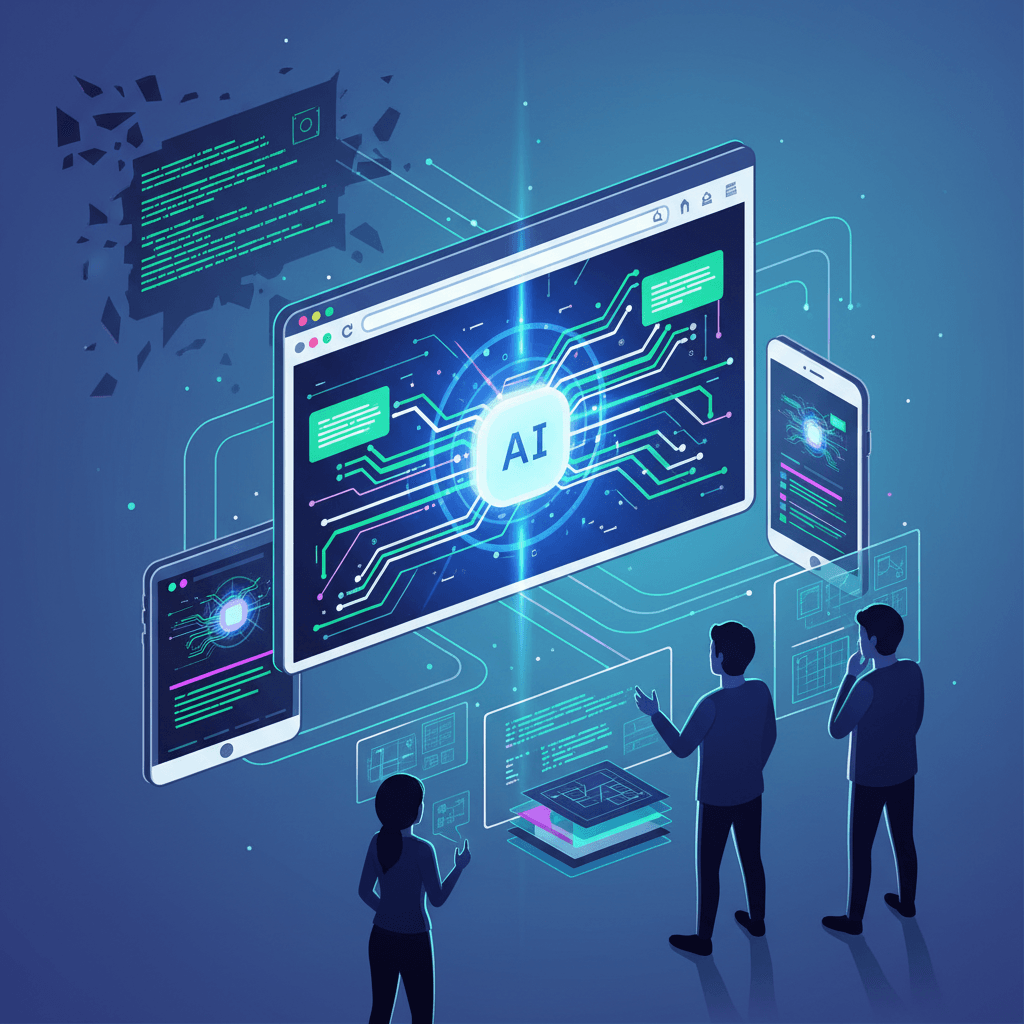Anthropic Unleashes Web-Based Claude Code, Democratizing Autonomous AI Coding
Anthropic brings powerful agentic AI coding from the command line to every browser, transforming developer workflow and access.
October 21, 2025

In a significant move to broaden the accessibility of its powerful AI-powered coding tools, Anthropic has launched a web-based interface for Claude Code. This development liberates the popular agentic coding assistant from the confines of the command line, making it available to developers directly within their browsers and mobile devices. Previously a tool primarily for those comfortable working in a terminal, this expansion represents a critical step in transforming sophisticated AI coding agents into mainstream platforms for a wider spectrum of developers and creators. The new interface, currently available as a research preview for subscribers of its Pro and Max plans, allows users to delegate complex coding tasks, manage projects, and interact with their codebases without needing to configure a local development environment.[1][2][3]
The transition of Claude Code to a browser-based application fundamentally changes its usability and reach.[4][5] By removing the terminal as a prerequisite, Anthropic is lowering the barrier to entry for advanced AI-assisted software development.[3] Users can now connect their GitHub accounts, select a repository, and assign tasks in natural language, such as "add error handling to the login page" or "refactor this CSS for better readability."[4][6] The tasks are then executed on Anthropic's secure cloud infrastructure, with each session running in its own sandboxed environment to ensure security.[7][3] This cloud-based execution means developers can initiate a task on one device and monitor its progress or review the results on another, including on the go via the iOS app.[4][7] A key feature of the new platform is its ability to handle multiple coding tasks in parallel.[4][7][3] Developers can assign a list of bug fixes or feature updates, and Claude Code will work on them simultaneously, pushing the completed changes to a new branch in the GitHub repository and preparing a pull request with a summary of the changes.[4][6]
This launch marks a strategic pivot in how developers can interact with AI, moving from a collaborative "copilot" model to a more delegative, "agentic" workflow.[4][8] Instead of generating line-by-line suggestions, Claude Code can now be tasked with larger, more comprehensive goals, which it breaks down and executes autonomously.[4] This approach is designed to free up developers from routine and time-consuming work, allowing them to focus on higher-level architectural and strategic challenges.[4][5] Anthropic itself is a primary user of this methodology, claiming that up to 90% of Claude Code's own codebase was written by the AI.[4][5] The company reports that this has led to a 67% increase in productivity per engineer, even as its engineering team doubled in size, a testament to the potential efficiency gains.[5][9] This internal success story serves as a powerful proof of concept for the tool's capabilities and aligns with CEO Dario Amodei's prediction that AI will write the vast majority of software code in the near future.[1][10]
Anthropic's strategic expansion of Claude Code places it in direct competition within an increasingly crowded and lucrative market for AI development tools.[1] The space has long been dominated by Microsoft's GitHub Copilot, with significant offerings also coming from OpenAI, Google, and a host of startups like Cursor.[1][11] By making its tool more accessible, Anthropic is positioning itself to capture a larger share of this growing market. Despite its previous limitation to the terminal, Claude Code has already demonstrated impressive traction, with user growth increasing tenfold since May and the product now driving more than $500 million in annualized revenue for the company.[1][4] This strong performance indicates a significant appetite among developers for powerful, agent-like coding assistants. The move to the web is poised to accelerate this adoption, appealing to a broader user base that may have been hesitant to adopt a command-line-only tool.[1]
In conclusion, the launch of a web interface for Claude Code is more than a simple platform expansion; it signifies a deliberate effort to democratize access to the next generation of software development tools. By moving its sophisticated AI agent to the browser, Anthropic is not only challenging established players but also pushing the industry toward a future where AI acts as an autonomous partner in the creative process of coding. This increased accessibility will likely accelerate the adoption of agentic AI workflows, fundamentally altering the roles and responsibilities of software developers. As these tools become more capable and easier to use, the focus of human developers will continue to shift from writing code to defining problems, overseeing AI-driven implementation, and guiding the strategic direction of software projects.
Sources
[1]
[3]
[6]
[10]
[11]